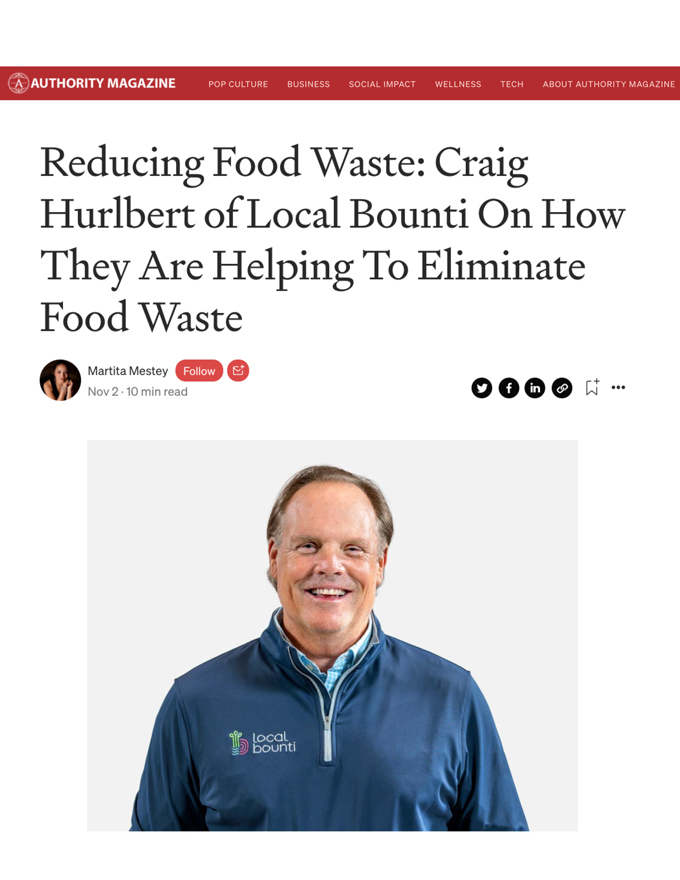What are a few of the obstacles that companies and organizations face when it comes to distributing extra
or excess food? What can be done to overcome those barriers?
In a word, what we are doing now when it comes to produce, is INEFFICIENT. Conventional
agriculture is grown outdoors and, in many cases, is LONG distances from the consumer. Our system is grown indoor and locally, not exposed to the elements, with 90% less water and 90% less land. In addition, we don’t use herbicides or
pesticides. This means the product is inherently better, i.e, it tastes better, has better texture and lasts longer.
Can you describe a few of the
ways that you or your organization are helping to reduce food waste?
Local Bounti is working to turn a new leafTM by starting a new chapter in agriculture. The brand is rebuilding our agricultural infrastructure with local communities in mind, providing transparency in all aspects of data logging and processes,
and ensuring ethical business operations by keeping sustainability at the forefront of every decision.
Whereas produce from traditional agriculture gets
slimy, smelly and inedible approximately three to five days from purchase, Local Bounti’s produce can survive three to five weeks while remaining fresh, delicious and crisp. CEA is disrupting conventional agriculture by allowing for shorter
transit time to retailers, thus allowing for less time for food to spoil. Further, CEA produce has 10x-1,000x less bacteria, leading to less spoilage and increased shelf life for up to five weeks. There is
consistent yield and supply to retailers, and up to 90% less water and land are used.
At Local Bounti, we have plans to double the size of our flagship
Hamilton, Montana facility and break ground on additional facilities by the end of 2021 — with eight facilities and a plan for 30 SKUs by the end of 2025. Local Bounti’s unique business model is based on building local facilities, operated
by local teams, to deliver the freshest and highest quality produce to local communities — eliminating food deserts and food waste — all while maintaining a limited carbon footprint.
